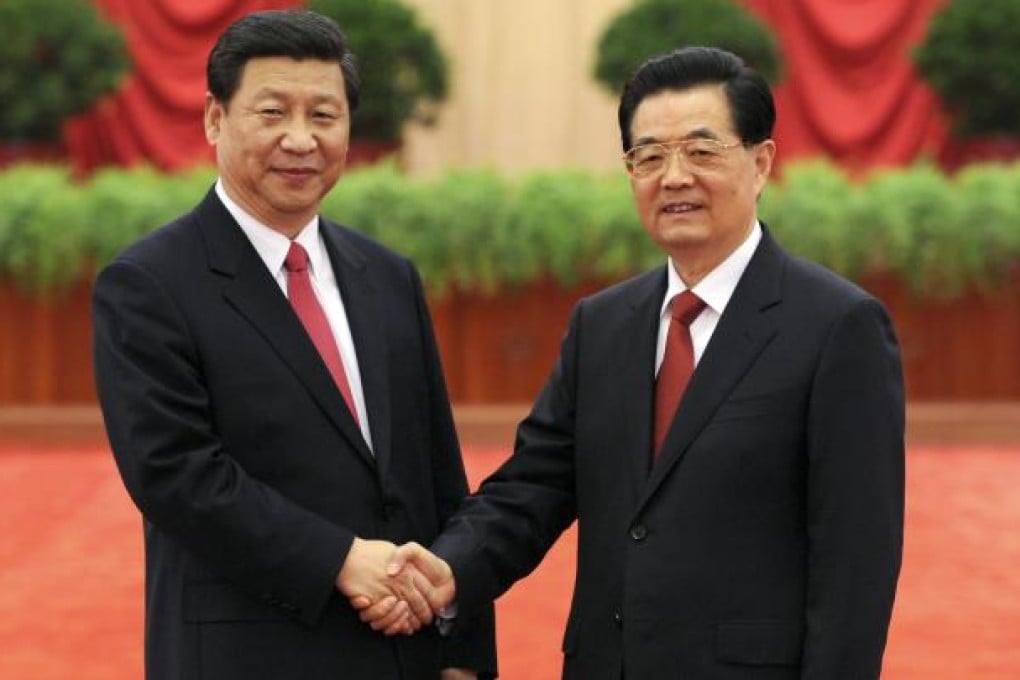
It’s a once-in-a-decade exercise. Behind closed doors, deals are struck and broken, careers are bought and sold, battles are won and lost. When the white smoke finally rises from the conclave chimney, new kings are crowned and another layer of intervening leadership is added to one of the most opaque political systems in the world.
The 18th National Congress of the Communist Party of China (第十八次黨代表大會) opened on 8 November and concluded less than a week later. Just as pundits had predicted, Xi Jinping (習近平), the rotund Beijing native and scion of a well-known party elder, emerged as the new paramount leader. To the rest of us on the other side of the door, the Party's National Congress is little more than an auditorium full of men (and an occasional woman) in black suits and red ties applauding on cue. Though that’s not far from the truth, exactly what the National Congress does and how it is different from similarly-named bodies like the National People’s Congress or NPC (人民代表大會) continue to elude us. Before we talk about the leadership change, we begin with a crash course on Chinese politics.
Chinese Politics 101
The National Congress is made up of 2,270 delegates from the Communist Party of China or CPC. With the CPC’s membership topping 83 million, the National Congress is a very exclusive club. Unlike the NPC, the National Congress is not a legislative body or even part of the government. It is simply the CPC’s own caucus that meets every five years to select and promote new party leaders. Think of it as the Republican National Convention in the U.S. that nominates a presidential candidate in an election year.
After the scourge of the Cultural Revolution, the CPC needed to prevent another personality cult by reshuffling their leadership every few years. In the 1980s, a pyramid structure was formally put in place. Twice a decade, the National Congress is called to elect the 205-member Central Committee (中央委員會), which in turn elects the powerful 25-member Politburo (中央政治局). The Politburo is the CPC’s nerve centre where important policy decisions are made. A seat in the Politburo guarantees fortune and fame, often in the form of high-ranking regional positions. The Politburo then elects the seven-member Politburo Standing Committee or PSC ( 政治局常委會), the most exclusive club in Chinese politics. Each PSC member is responsible for a major national issue, from the economy to corruption and propaganda. The PSC is chaired by the General Secretary, the highest office in the land.
That’s how things are supposed to work on paper. What happens in practice, however, is a different matter. First of all, the word “election” is used loosely in Chinese politics. The line-up of the Politburo and the PSC is determined by endless horse-trading and power struggles behind the scenes. The National Congress and the Central Committee are mere formalities to rubber-stamp whoever party elders pre-ordain. Second, the concept of retirement is alien to strongmen who have stepped down from their posts. As long as they still have a pulse, retired leaders continue to exert their influence by stuffing the Politburo with their own allies. Since Jiang Zemin (江澤民) stepped down in 2002, he has remained an éminence grise in key party decisions. Jiang was widely seen as the man responsible for Xi Jinping’s meteoric rise through the ranks and reportedly blocked two pro-reform candidates, Guangdong party chief Wang Yang (汪洋) and Head of the Organization Department Li Yuanchao (李源潮), from entering the Politburo last week. Because retired leaders refuse to give up control, each generational leadership change ends up throwing more people into a kitchen that already has too many cooks. And you know what they say about spoiled broth.

